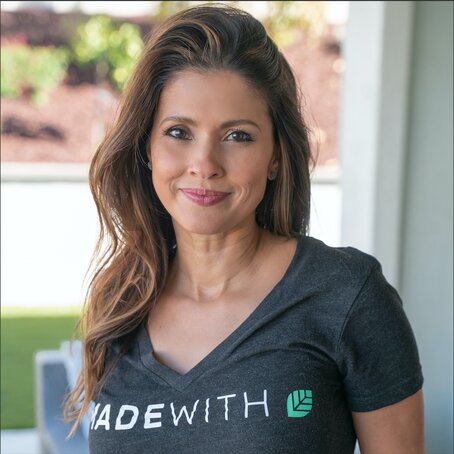CO- AUTHORED BY MALIA THOMPSON
We all want healthy, hydrated skin. When we are maintaining moisture in our skin, our skin looks more vibrant (some say “glowy” or “dewy”), feels softer, and wrinkles & fine lines are minimized. It also causes our skin to produce less oil (oil is generally produced in our skin to help keep moisture in).
A question I’ve heard a few times is “Do I need hyaluronic acid, because I hear hyaluronic acid is great for hydration?”
We are not against hyaluronic acid, but – like any other ingredient – it may or may not be appropriate for your skin, it requires some level of skill of how and when to use, and how it’s sourced and formulated matters. Personally, hyaluronic acid on its own doesn’t do much for my skin.
Why? The first step to understanding the answer is understanding that hyaluronic acid is a humectant. There are MANY other humectants in skin care (we’ll provide some examples below). But humectants are only part of a well-balanced hydration maintenance system.
To properly maintain skin hydration, you’ll want a solid combination of:
1 – EMOLLIENT: oils/agents that soften the skin
2 – HUMECTANT: agents that work like a magnet and draws moisture to itself
3 – OCCLUSIVE: a balm or oil that works like a seal to prevent moisture from evaporating
So if you’re like me and generally dry, a humectant like hyaluronic acid won’t work well on its own as there isn’t much moisture in my skin for it to attract (thanks to eczema). Humectants leave my skin feeling sticky rather than hydrated.
Where does moisture come from? MOISTURE mainly comes from within. Sure, you might be able to get a touch of moisture from damp skin after you cleanse, humidity in the air, or watery substances in your skin care, but in general your skin care is meant to maintain moisture within your body. So drink your water! And use skin care to help prevent the loss of moisture through your skin.
To properly maintain moisture in your skin, you’ll need a solid combination of emollients, humectants, and occlusives. And depending on your skin state & environment you will need more or less of each category.
Some examples of EMOLLIENTS are:
- Abyssinian Oil
- Borage Seed Oil
- Carrot Seed Oil
- Chia Seed Oil
- Cloudberry Seed Oil
- Evening Primrose Oil
- Meadowfoam Seed Oil
- Prickly Pear Seed Oil
- Pumpkin Seed Oil
- Rosehip Seed Oil
- Red Raspberry Seed Oil
- Sunflower Oil
- Squalane
- Strawberry Seed Oil
Some examples of HUMECTANTS are:
- Aloe
- Amino Acids, Peptides + Hydrolyzed Proteins
- Glycerin
- Hyaluronic Acid
- Honey
- Sodium PCA
Some examples of OCCLUSIVES are:
- Argan Oil
- Avocado Oil
- Beeswax
- Cocoa Butter
- Coconut Oil
- Grape Seed Oil
- Jojoba Oil
- Lecithin
- Mango Seed Butter
- Marula Oil
- Neem Oil
- Safflower Oil
- Sea Buckthorn Oil
- Shea Butter
- Sweet Almond Oil
But that’s only the start of it. Even though I very much understand these 3 categories are the criteria for maintaining skin hydration, it doesn’t mean I can now make the perfect moisturizer for my skin. I’ve been trying for 20 years, and I’ve yet to find the right ratio and processing of ingredients to make the perfect moisturizer.
Formulations are hard. It’s like baking: sure – flour, eggs, and water are often great in cake recipes, but if you don’t find the right ratio of ingredients, when to add them, and what temperature to combine/process, it’s a mess.
And given how much our skin and environment changes, we usually achieve our best results by combining products. For our more advanced clients who want a more comprehensive routine, we send different products to layer with each other to help clients achieve optimal hydration results given our skin and environment can shift from day to day. For clients who are oilier, we tend to send products with a higher humectant value to help maintain their hydration and produce less oil. For clients who are dry, we send a solid combination of the 3. We generally recommend slugging to seal in skin care, and we also recommend oil cleansers to maintain the pH balance of your skin when removing dirt from your face.
The lack of education in skin care was a driving force behind why we created MADEWITH. Education is lacking, and all skin is different. Instead:
1 – we look at your skin, your sensitivities, environmental factor, and skill level to determine product choices
2 – we review those choices with you
3 – we provide you with education on how to properly use & layer those products (this is where our mentor education shines)
It’s why 52% of our clients are repeat purchasers, and 97.7% less products are returned than our competitors.
So check us out if you haven’t already!! There’s no magic product for everyone, but we can help you find the right combination and educate you on how to properly use so you can maintain the moisture in your skin – all from an expert who is already well-versed in balancing skin.
In addition to technology & education, MadeWith’s team of experts review all products before allowing them into our inventory. Only 1% of products we receive from brands get into inventory.
To get your own skin care mentor, register through this link – you’ll also get 20% off your first order.


